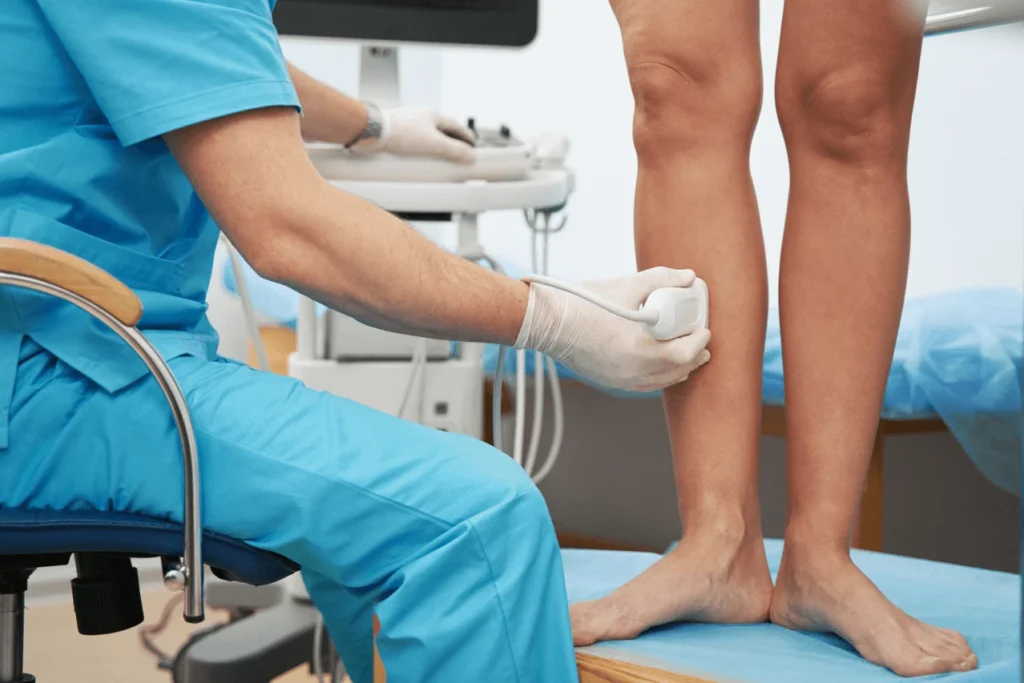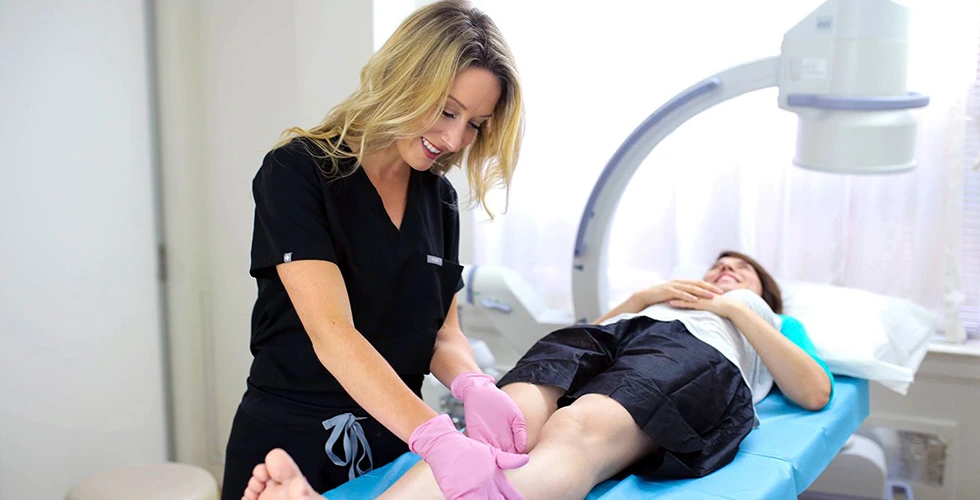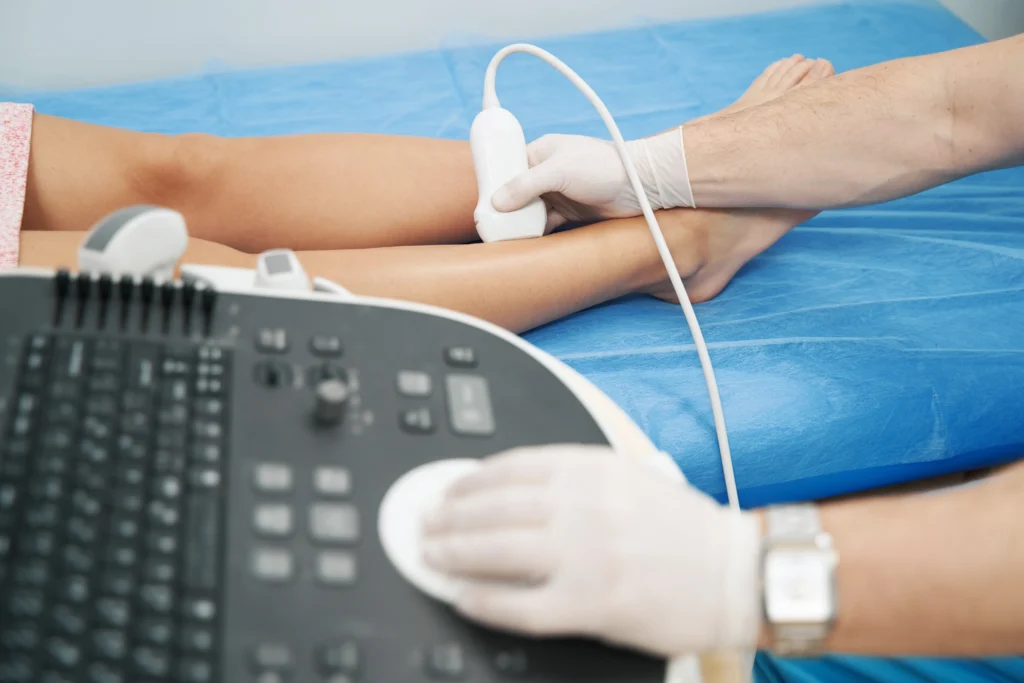What type of doctor treats venous insufficiency?
Venous insufficiency is a common medical condition that occurs when the veins in the legs have trouble carrying blood from the legs back to the heart. This can lead to swollen legs, painful skin, and even infection. While not life-threatening, this condition can be uncomfortable and require medical attention. If you believe you might have venous insufficiency, it’s important to seek out the right doctor for treatment. The type of doctor most equipped to treat this condition is a venous specialist, also known as a phlebologist.
Phlebologists are specially trained to diagnose, treat, and manage disorders of the venous system. They understand how to diagnose and manage several circulatory disorders, including venous insufficiency. Phlebologists are typically certified in vascular medicine and complete additional specialized training. They will run tests to diagnose your condition and create a personalized treatment plan tailored to your needs and lifestyle, usually consisting of lifestyle changes and minimally invasive procedures.
Venous insufficiency is a common condition, and seeking the help of a venous specialist is often the best way to find relief. With the right diagnosis and treatment plan from a qualified physician, you can begin to feel better and enjoy life to the fullest.

What do you call a doctor who specializes in veins?
If you’ve ever experienced pain, itching, swelling, or discoloration of your veins, you may have considered seeing a doctor who specializes in veins. But the question is: what kind of doctor is that, exactly?
The answer is that you should visit a doctor called a vascular surgeon or a phlebologist. A vascular surgeon is a doctor who is board-certified in surgery and has special training, experience, and expertise in diagnosing and treating diseases of the veins, arteries, and circulatory system. They use medical, surgical, and endovascular techniques to diagnose and treat vein conditions.
A phlebologist is a doctor who is board-certified in vascular medicine and specializes in diagnosing and treating vein disorders. They undergo special training and have experience in diagnosis, treatment, and manual interventions, such as sclerotherapy, radiofrequency ablation, and laser ablation. Phlebologists generally use minimally invasive procedures to address the root cause of your vein problems without downtime or complications.
A vascular surgeon may specialize in more invasive surgeries, while a phlebologist specializes in less invasive treatments, like sclerotherapy and radiofrequency ablation. Since most vein problems can be treated using minimally invasive procedures, you should ideally contact phlebologists or vein doctors instead of surgeons. A phlebologist can provide the best diagnosis and treatment options to ensure a successful outcome.
Where can I get my varicose veins removed?
If you’ve been recently diagnosed with varicose veins or have already been living with this condition for some time, you might be wondering where to get your veins removed. Fortunately, there are tons of options for you to consider. Varicose veins can be removed or treated at specific vein clinics that specialize in removing varicose and spider veins.
At a vein clinic, experts can determine which treatment is best for you, such as endovenous laser ablation, radiofrequency ablation, or sclerotherapy. If you have chronic venous insufficiency, laser ablation and radiofrequency ablation can be done in a relatively short time frame in the office. Alternatively, injection sclerotherapy is a popular option for treating small varicose veins and spider veins.
Maryland Vein Clinic is a state-of-the-art vein clinic specializing in minimally invasive vein treatments in Maryland. Our vein clinic is led by board-certified vein doctors who thoroughly evaluate and diagnose the root cause of your vein problems, following which they curate a personalized treatment plan. You can find our vein clinic at 10215 Fernwood Rd, Suite 301, Bethesda, Maryland, just outside Washington, DC, in Silver Spring.
Please schedule an appointment to have your varicose veins removed.
What are the signs and symptoms of chronic venous insufficiency?
Chronic venous insufficiency (CVI) is a condition that affects blood flow within the veins, usually in the legs. It is caused by faulty valves within the veins that normally allow the blood to flow back up to the heart. When these valves are weak or damaged, the blood fails to flow back and pools in the legs, which can cause swelling, pain, and other undesirable effects over time.
The signs and symptoms of CVI can vary from person to person. Some of the main signs and symptoms of CVI include: swelling of the ankle, foot, and calf, especially after prolonged standing or sitting; sensation of tired, heavy, or aching legs; development of varicose veins, which are enlarged, twisted veins; and itching, redness or skin discoloration on the legs (stasis dermatitis). In some cases, ulcers may develop on the skin of the legs.
Apart from these physical symptoms, other signs and symptoms of CVI include tightness in the legs and pain, throbbing, and burning sensations. Swelling may become more severe at night. If you think you could be suffering from CVI, you must contact a vein doctor in Maryland for diagnosis and treatment. Your doctor can carry out a venous reflux study and diagnose the condition.
CVI can worsen over time if left untreated, and early intervention can make a big difference in your overall health and quality of life.
Don’t ignore your symptoms.
At Vein Treatment Clinic, we’re here for Maryland patients with expert vein doctors and convenient locations close to home.
Whether you’re in Bethesda, Bowie, or Maple Lawn, you’ll find advanced care for spider veins, varicose veins, and chronic venous insufficiency at our clinics.
Patients across Maryland trust our Ivy League–trained, board-certified specialists for minimally invasive treatments that improve circulation, relieve pain, and restore confidence. In Maryland, our team includes Dr. Kamran Saraf and Dr. Lisa Alford, two highly experienced vein experts dedicated to providing personalized care.
Book your consultation today at the clinic nearest you.





